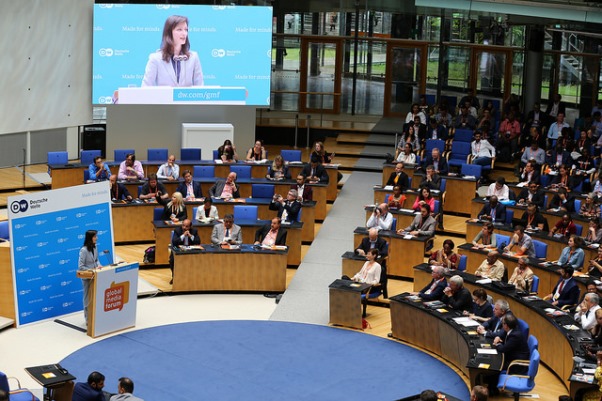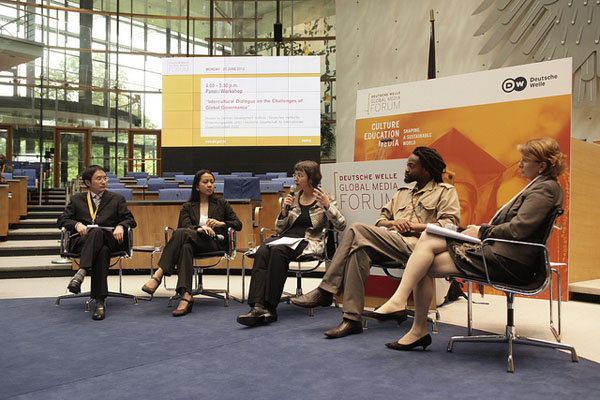Four things you may have missed at the 2018 DW Global Media Forum
The 2018 Global Media Forum wrapped up last week with over 2,500 guests from all over the world gathering in Bonn for three days of learning and networking. You probably caught the keynote speeches, and the DW Freedom of Speech Award , but here are four events at the 2018 Global Media Forum you may have missed.
1. Peace With the Taliban: A Compromise on Human Rights?
On Tuesday, former Afghan President Ahmed Karzai was joined by DW journalists and the German envoy to Afghanistan to discuss the potential for peace with the Taliban in a country beset by continuous conflict. The discussion provided first-person insight into a complicated and unstable region from someone who has played an integral part in its politics.
2. Reporting terror: Who sees what, when and why?
Four journalists with experience in reporting from crisis regions around the world gathered for a panel discussion on Monday to discuss how stories about terrorism are portrayed unequally in the media. For example, the Charlie Hebdo attack dominated the media, while 2,000 people killed by terrorists in Nigeria at the same time didn’t make the news cycle. The panel provided a riveting, inside look at challenges and dangers of delivering information from dangerous areas while looking for an audience.
3. Threats and opportunities of increasing isolationism to international power relations
At a plenary discussion on Tuesday, a panel of prominent journalists and academics discussed the trend of isolationism, especially with Donald Trump’s “America First” politics. One speaker discussed the danger of the US losing soft power on the world stage and being ignored internationally. The panel provided a preview of a future that looks a lot different than today.
4. Lie Detectors
The final day of the Global Media Forum was devoted to media innovation. As part of the Innovation Lab day, DW Akademie invited the media competence organization Lie Detectors, which goes to schools and teaches children media literacy and how to spot fake news stories from real reporting. As online news and social media are the primary sources for a new generation of media users, this service will become even more valuable.






